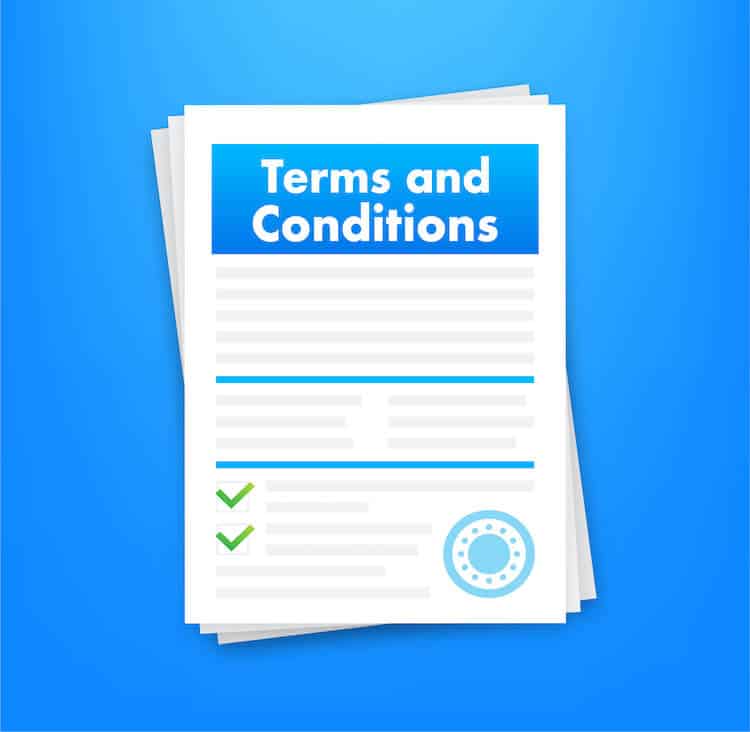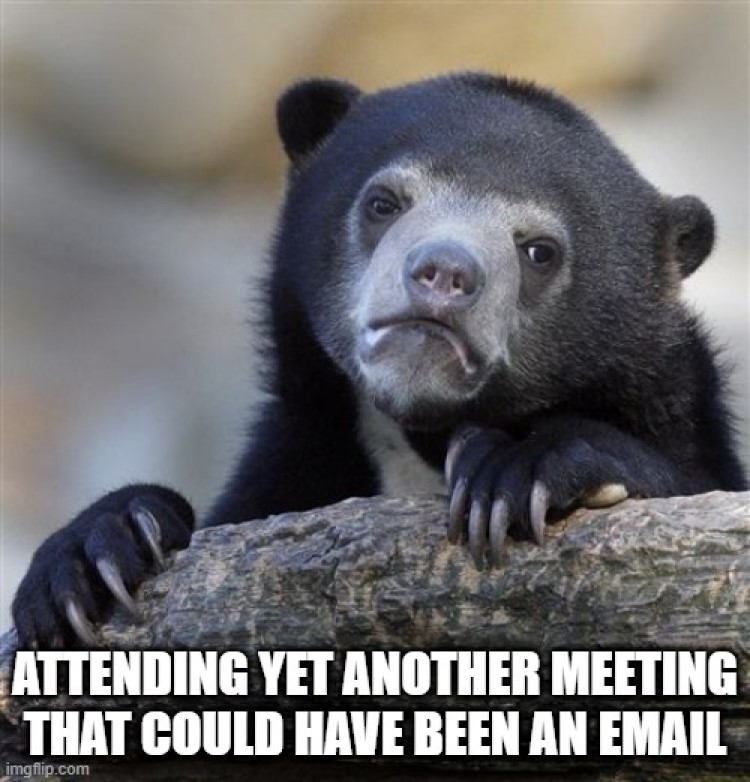Owning a website or a blog is all fun and games until you get sued. So, it’s very important to know what your website needs to be legal and profitable.
Did you know that most companies and small business owners’ websites are being run illegally due to the lack of legal pages on their sites?
Did you know you can get sued for tens of millions of dollars for not having legal pages on your website?
Without having proper legal pages and templates, not only are you risking your website from being sued, but you are setting it up for monetary failure.
Without proper legal compliance in place, it is next to impossible to own a profitable website.
We are going to discuss the main legal pages your website needs to be legal and profitable. And all at an affordable cost.
Worried you’ll have to pay a lawyer thousands of dollars to run a legal website? Think again. We will dive into a few resources you will invest a nominal amount. They are drafted by a lawyer who helps people like you create successful, money-making, and legal websites.
Table of Contents
ToggleWhat Your Website Needs to be Legal and Profitable?

First, let us start by stating the facts. There are free legal templates available online as we speak. Do not under any circumstance think these will work for your website and pass in a lawsuit if you are sued. We will share a legal bundle that allows you to get affordable legal templates, all curated by a lawyer.
You may be thinking, “Why do I even need legal pages on my website?”
The short answer is that unless you want to get sued, and unless you’re not serious about making money from your website.
98% of websites out there do not have the appropriate legal pages that you need to run that website in the first place. This includes bloggers, as most people are aiming to make more money from blogging.
- If you have affiliate content and links on your website, this applies to you.
- If you sell products and services on your site, this applies to you.
- If you offer coaching or consulting of any kind, this applies to you.
- If you want to work with paid brands and sponsorships, this applies to you.
- If you offer or plan to offer subscription services on your blog, this applies to you.
- If you collect your visitor’s information, this applies to you.
You need to be operating your website LEGALLY; otherwise, you can get your site, blog, or business shut down and pay heavy fines.
However, before diving in, you must ask yourself, is this website something I would like to have long-term and earn a profit from? If that is the case, then your website must be legal to be profitable. It can’t have one without the other.
Four Main Legal Pages for Your Website
There are four main legal pages that you will need to ensure your website is permitted:
- Privacy Policy
- GDPR and CCPA
- Disclaimer
- Terms and Conditions
Privacy Policy
This is a legal document that is required on your website. It is not optional whatsoever, and those without it are running their site, whether it’s a blog or a company’s website, completely illegal.
This legal document on your website will show you how to collect and protect the information of the visitors and readers on your site.

People need to feel safe knowing that their information is going to be used appropriately on your website. This privacy policy will outline the legal provisions on your website so that it is fully compliant.
Suppose a person visits your website and shares their name, email address, billing, shipping information, debit/credit card information, social security numbers, and bank details. In that case, you are required by law to have a privacy policy page.
These Privacy laws exist all around the world and are not exclusive to North America. It doesn’t matter what your website is or who runs it. If it’s not legal, you face the ramifications of being sued.
General Data Protection Regulation (GDPR)
This legal page discloses to any visitor from the European Union (EU) on your site to protect their personal information. This compliance law goes for anybody who lives in or outside of the European Union.
If there is any non-compliance with GDPR, the fines go up to “4% of annual revenue, it introduces some of the harshest penalties for a breach of data protection laws anywhere in the world.”
In 2020, Marriott Hotels had to pay a $23.8 million fine due to not being GDPR compliant. Other well-known brands and businesses like British Airways and H&M have had to pay these fines due to gross negligence and lack of GDPR compliance.
California Consumer Privacy Act (CCPR)
This is a new California law that invokes special protection rights for California citizens. For example, if your business derives over 50% or more of its revenue from selling your consumer’s personal and private information, this applies to you.
Or, if you receive the personal information of 50,000 individuals or more from your website, this also applies to you.
If your website is not CCPR compliant, you can face anywhere from $2,500 to $7,500 per violation.
Disclaimer
A Disclaimer legal page can protect you from lawsuits, and you need to disclaim that you are liable for the content you are sharing on your website. For example, if you own a coaching business where you help entrepreneurs to create a business online, you must have a disclaimer that you don’t guarantee results.
There are various forms of disclaimers ranging from an earnings disclaimer to a health or medical one. The point is you must have legal pages that contain a waiver for your website.
Terms and Conditions
Your Terms and Conditions are a list of rules that you share with your visitors. Or, in this case, your website rules.

It is a document that shares what you permit and what you do not on your website. The Terms and Conditions page is also a crucial template to have if you want to ensure that your content is protected and copyright safe. Every website needs one, so get yours today! If you have these four legal pages, you will have the basics for your legal templates with your VIP legal bundle.
Other legal pages you may want to consider investing in are
Guest Blogger Agreement
This is a type of contract by which the guest blogger grants you (the site owner) the legal rights to use their content, videos, or images. If you don’t have a guest blogger agreement you run the risk of falling foul of copyright law and other intellectual property laws regarding publishing other people’s content on your website. When you’ve got a guest blogger agreement, you acquire those legal rights from the guest author.
Freelance Contract Template (Independent Contractor Agreement)
This is an agreement between you and your client that clearly outlines everything you and your client need to know about a job. It’s a legal document that could be used in court. If, for example, you keep up your end of the contract and deliver your work on time but your client doesn’t pay you, there is a written agreement that you can take to court.
Sponsored Posts Contract
A sponsored posts contract includes guidelines on writing the contract, compensation received, and legal protection for all parties. In the contract there should also be guidelines on how any disputes should be resolved, to avoid unnecessary litigation.
Media Release Agreement
A media release is copyrighted because they are being written by a person on behalf of a company. A media release agreement is a legal document you must use before using someone else’s media assets, photos, videos, or testimonials. If you don’t use one, you run the risk of getting sued, losing sleep, and ultimately lots of money.
Sweepstakes Agreement
Sweepstakes are governed by an array of laws and there are legal goals to keep in mind if you want to run a sweepstake to market your business. All sweepstakes must have official rules, which is the contract between the sponsor and the entrant. The rules cannot change once a sweepstake has begun.
Consulting Agreement
A consulting agreement is an agreement between a consultant and a client who wishes to retain a certain specified service of the consultant for a specified time at a specified rate of compensation. It describes the working relationship and keeps both parties accountable. It also helps protect your business from possible disputes.
LLC Operating Agreement
An LLC operating agreement is a legal document that outlines the ownership and member duties of a Limited Liability Company. It also outlines the rights and responsibilities of each owner. It is the best way to prevent any misunderstandings down the line.
Affiliate Agreement
An affiliate agreement is an agreement between a merchant and an affiliate under which a website owner will pay a commission or fee for referrals. When there is a written agreement that’s been written and signed by both parties, there can be no confusion.
Design Service Agreement
This legal document outlines the terms and conditions of a design firm or individual contractor who is performing design services on behalf of the company. It will outline payment terms, the scope of the designer’s work, the rights and responsibilities of the client, and the process of requesting changes to a design. It will also address potential licensing and intellectual property issues that might arise once the design project is complete.
Confidentiality Agreement
This is also called a nondisclosure or secrecy agreement. It’s a legally binding contract that establishes a confidential agreement. It will also outline the consequences of disclosing prohibited information, which should prevent any leaks.
Website Sale Agreement
This is a contract for the sale and purchase of a domain and website. Having this agreement in place is essential because it regulates the relationship between the parties in the event of disagreements or misunderstandings. The sale of a domain and website is a complicated transaction in that there are several IP Rights and other factors that must be considered.
Conclusion
As always, if you’re going to have a website, you want all your legal ducks in a row, especially if your website traffic and revenue have started to increase. Now more than ever, running a website selling products or services like copywriting/blogging offers an opportunity to earn real money.
Online resources such as make money blogging (the ultimate guide 2022) will help convert your hobby into a viable source of income. The last thing you need just as your business takes off is to worry about being slapped with a lawsuit.
Following the advice in this article will give you a sense of peace knowing that you’re operating legally. Plus! On the bright side, you’re setting up your website for money-making success.



